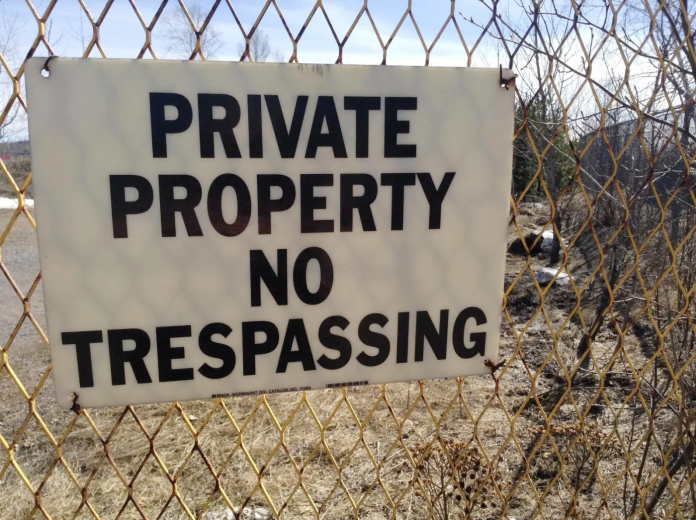Government gathered responses by mail, email and through an online questionnaire from August 9 to October 2 to collect insight from Saskatchewan residents on potential changes to trespassing legislation.
Justice Minister Don Morgan thanked everyone who responded to the survey and said it provides a clear direction to the government as it updates provincial trespassing legislation.
“The responses show that many people see the current onus on the land owner to post their property as unfair, and that instead, the onus should be on the person accessing the private property,” Morgan said. “We are now in the process of updating the legislation to clarify the consent requirements for those seeking access to privately-owned land for recreational activities like hunting and snowmobiling.
“Respondents also said that responsible hunters and snowmobilers already seek appropriate consent and that any change would only affect the small number who do not consider land owners’ concerns.”
The government expects to introduce legislative amendments during the current fall sitting of the Legislative Assembly.
Executive Summary:
| Total Responses Received | 1601 | |
| In favour of permission prior to entry in all cases | 1039 | 65% |
| Opposed to permission prior to entry in all cases | 515 | 32% |
| Inconclusive responses | 47 | 3% |
Four questions were set out for consideration in the questionnaire:
Question #1 – Should all access by members of the public to rural property require the express advance permission of the rural land owner regardless of the activity?
Question #2 – Should there be a distinction between cultivated land, fenced property and open pasture land or should all land being used for agricultural purposes be treated the same?
Question #3 – How should permission be sought and granted?
Question #4 – Would making consent an express prerequisite in all circumstances represent an unreasonable impediment to recreational activities?
These questions were asked in response to concerns that Saskatchewan’s trespass legislation can be confusing and that it needs to better address the appropriate balance between the rights of rural land owners and members of the public. Existing access and posting rules vary for different activities under The Trespass to Property Act, The Wildlife Act, 1998, The All-Terrain Vehicles Act, and The Snowmobile Act.
Question #1 – Should all access by members of the public to rural property require the express advance permission of the rural land owner regardless of the activity?
The strong majority of respondents indicated a clear preference that express advance consent be required in all cases of access to private rural property by members of the public. Most respondents said that the existing onus on rural land owners to post their land in a particular manner in order to prevent trespassing was frustrating and unfair, and that the burden should lie on the person seeking access to request permission. Hunter safety, rural crime and biosecurity were most often cited as concerns from landowners who have experienced trespassing.
Concerns were expressed by a significant minority of respondents that the existing provisions were appropriate and that changes to the rules were not needed. Some respondents argued that restrictions should apply only to vehicles, as foot traffic did not represent the same risk for abuse.
Question #2 – Should there be a distinction between cultivated land, fenced property and open pasture land or should all land being used for agricultural purposes be treated the same?
Those who supported a requirement for express advance permission generally drew no distinction between cultivated land, fenced land and open pasture land. Their view was that all property owned by an individual should be treated in the same fashion when it came to permission. A minority, particularly snowmobilers, supported a legal distinction between fenced and unfenced property that did not require them to ask for consent to snowmobile on unposted, unfenced property.
Question #3 – How should permission be sought and granted?
There was less clarity in the responses around how such permission should best be sought and granted. Some responses advocated advance written permission, while others supported the practice of providing oral consent, or consent through posting or other signage. Some respondents suggested that stronger supports or systems should be put in place for those wishing to obtain permission to access land, in the event consent requirements are enhanced.
Question #4 – Would making consent an express prerequisite in all circumstances represent an unreasonable impediment to recreational activities?
With respect to impact on recreational activities, respondents noted that responsible hunters and recreational activists were already seeking appropriate consent and that this change would only impact those who do not respect legitimate land owner concerns. A significant minority indicated that this change would have a detrimental effect on hunting, snowmobiling and other recreational activities.
The questionnaire and the collected responses can be found in the attachments at the bottom of this release. The attached documents do not include blank responses received via the online questionnaire, emails that did not provide a response, or responses that were determined to be inappropriate or inflammatory.










